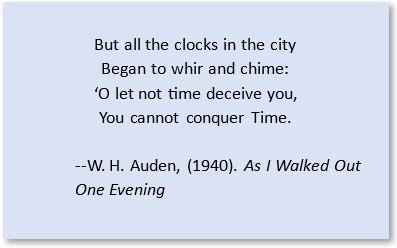Stoic Values XI
2 December 2023
What follows is an amendment of my thinking on the Stoic-Nietzschean idea of amor fati. Amor fati is Latin for love your fate. (Earlier blog, same subject, here.) What Nietzsche wrote was that:

What I know today, that I did not know in 2020 when I wrote that blog, are the implications of the Stoic belief in providential gods. If you believe that there are beneficent gods (or a beneficent G-d) overseeing the unfolding of the universe, then it is equally reasonable to believe the lovely edict of Julian of Norwich that All will be well, and all manner of things will be well (Optimism, p. 1). In harsh, concrete terms, if we lose a loved one and believe that to be the omniscient will of a loving G-d, acceptance seems more natural. I suspect that sense of naturalness comes from the corollary belief that, if the universe is beneficently managed, all things happen for a reason.
I don’t believe all things happen for an overarching reason or purpose. I don’t believe the universe is overseen. I believe we, the reasoning animals, are here based on an enormous statistical longshot that allowed our one in a trillion Milky Way galaxy to foster an evolutionary chain that resulted in humanity. Humanity, in an astrological blink of an eye, created cities, art, music, reason, medicine, freedom and love simultaneous with war, pollution, power-lust, and hatred. Given that astrological-evolutionary view, amor fati makes less sense in late 2023 than it did in 2020.
For those in the addictive community, what does this lack of belief in amor fati mean about acceptance? Interestingly, the chance-based, astrological-evolutionary view makes acceptance more organic, more of the Earth, more natural. Acceptance seems more natural in a chance-based universe if we face the simple reality of what we all know about time. The past-present-future conception is one of the fundamental facts of life. We were not here before our day of birth, we’re here now (if you’re reading this!) and we’ll be gone in less than 90 years, for our youngest possible readers.
Given the optimistic 100-year life, we have 1,200 months, 5,200 weeks, or 36,500 days of life. In Canada, today, the average age of death is approximately 82 so multiply the numbers above by 0.82, if you’re statistically oriented. And ultimately the numbers do become the point. How many of your days, weeks, and months do you want to spend fighting against the undefeatable force of fact-based truth? I immediately think of the first poem I studied with the exceptional Dr. Susan Dick at Queen’s University, Kingston:

When we refuse to accept life’s terms, we are fighting self. To fight oneself is to put an enormous weight around your waist and hope to swim in Lake Ontario during a storm, as an average, untrained swimmer. So, the question becomes, why do we not accept life on life’s terms? Short answer: we’re afraid the hurt and pain of acceptance will kill us. And this is a mighty paradox because it is the denial of reality that actually lessens our number of truly alive days. And in some ways, it is the days during which we are most fully receptive and alive to what life offers that really count. Denying, hiding, getting high, avoiding costs, brings dreary, harsh, trouble-building days that ultimately take one off the board or bring one to one’s knees on what the 12-steppers call rock bottom.
If we accept reality on its own terms (A=A), and if there is no uber-providence, we are alone, free, and doomed (or privileged) with the opportunity to make our own choices. At which choices does a rational animal aim in a well-directed life? In a word, kalokagathia. More next week.
Dan Chalykoff is a Registered Psychotherapist (Qualifying). He works at CMHA-Hamilton and Healing Pathways Counselling, Oakville, where his focus is clients with addiction, trauma, burnout, and major life changes. He writes these blogs to increase (and share) his own evolving understanding of ideas. Since 2017, he has facilitated two voluntary weekly group meetings of SMART Recovery. Please email him (danchalykoff@hotmail.com) to be added to or removed from the Bcc’d emailing list.
References
Kaufmann, W. (1992). Basic Writings of Nietzsche. The Modern Library.
Optimism, (2023, 1 December). https://www.centreforoptimism.com/all-shall-be-well-and-all-shall-be-well-and-all-manner-of-thing-shall-be-well
Comments